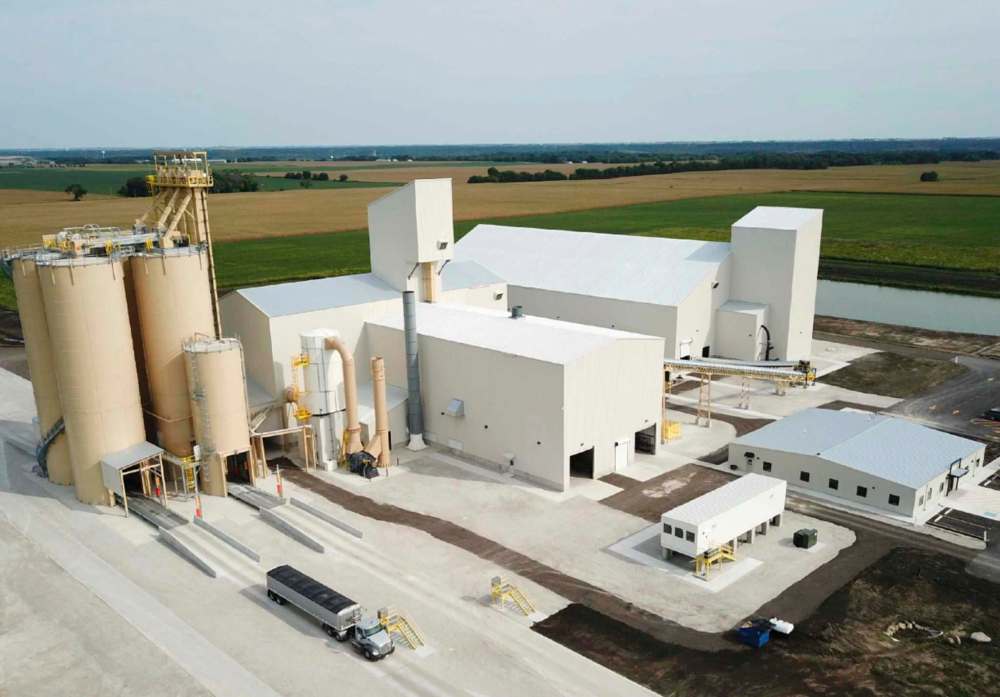Frac-sand project faces major hurdles, competition
Advertisement
Read this article for free:
or
Already have an account? Log in here »
To continue reading, please subscribe:
Monthly Digital Subscription
$1 per week for 24 weeks*
- Enjoy unlimited reading on winnipegfreepress.com
- Read the E-Edition, our digital replica newspaper
- Access News Break, our award-winning app
- Play interactive puzzles
*Billed as $4.00 plus GST every four weeks. After 24 weeks, price increases to the regular rate of $19.00 plus GST every four weeks. Offer available to new and qualified returning subscribers only. Cancel any time.
Monthly Digital Subscription
$4.75/week*
- Enjoy unlimited reading on winnipegfreepress.com
- Read the E-Edition, our digital replica newspaper
- Access News Break, our award-winning app
- Play interactive puzzles
*Billed as $19 plus GST every four weeks. Cancel any time.
To continue reading, please subscribe:
Add Free Press access to your Brandon Sun subscription for only an additional
$1 for the first 4 weeks*
*Your next subscription payment will increase by $1.00 and you will be charged $16.99 plus GST for four weeks. After four weeks, your payment will increase to $23.99 plus GST every four weeks.
Read unlimited articles for free today:
or
Already have an account? Log in here »
Hey there, time traveller!
This article was published 11/12/2019 (2134 days ago), so information in it may no longer be current.
The problem facing Canadian Premium Sand (CPS) is that it needs to overcome some big internal hurdles, and if successful, then face stiff competition from existing frac-sand operations should it succeeds in getting its mine fully operational near Hollow Water First Nation.
Northern White Sand (NWS), the gold standard in frac sand, is mined mostly in Wisconsin, and like many frac-sand operators is an end-to-end user-integrated operation.
The term “end-to-end user-integrated operations” means these operations in Wisconsin have long established large-volume contracts for their frac sand with various oil and gas fracking operations in all of the major oil and gas fields throughout North America, including Canada.

These Wisconsin frac-sand companies, in addition to owning the frac-sand mines and processing facilities, also tend to own or have a financial stake in all of the necessary on- and off-loading transportation infrastructure to move their frac sand as close as possible to their markets, such as the rail transload facilities needed to load and unload their frac sand.
In addition, these Wisconsin companies have long-term contracts with major rail companies, such as CN and CP, to pick up and deliver their frac sand to their rail transload facilities located near their markets, they then contract out last-mile truck services to deliver their frac sand to the wellhead.
These highly integrated operations are designed to deliver frac sand to their markets at the lowest price possible. Many of these frac-sand companies in Wisconsin have been doing this for a decade or more, and are able to undercut freight on board (FOB) prices for their frac sand when a new startup operation, such as Canadian Premium Sand, wants to enter the market.
In short, these Wisconsin frac-sand operations have captured nearly 70 per cent of the North American market by offering a superior product and by being fully integrated end-to-end user frac-sand operations.
However, given the downturn in oil and gas prices, and the need for oil and gas fracking operations to reduce their costs, all these operations are now looking to acquire frac sand that is situated much closer to where they operate in the major North American oil and gas fields. This is what is precisely occurring now, both in Canada and the U.S., and this drive to find “in-basin frac sand deposits” has created an oversupply of frac sand, which in turn has further reduced the market and price for NWS.
For CPS, the closest markets, should they become operational, would be Bakken oil and gas fields located in Saskatchewan, North Dakota, Montana and a small part of southwestern Manitoba.
Given the distance between CPS’s proposed frac-sand mine and a major rail transportation hub — almost 200 km away in Winnipeg — and with no frac-sand transload facilities currently located in Winnipeg (and with the possibility of no processing facility to be constructed at its frac-sand mine site location as part of their as-yet-incomplete cost-optimization measures), these will be some major hurdles that CPS will need to overcome, first and foremost, to even get in the game.
CPS will also need to secure frac-sand contracts beforehand from fracking operations in North America’s oil and gas fields, then secure offload rail transload facilities located near their potential markets. CPS will have to do all this at a very competitive price against frac-sand operations in Wisconsin that are currently operating in these areas and which have a huge cost-savings advantage over CPS, precisely because they are fully integrated operations.
No doubt, CPS is trying to figure out how to overcome these many hurdles as it prepares its cost-optimization report, but it is fairly evident that CPS will need to radically alter its original plans, for which it has already received government of Manitoba approval.
Don Sullivan is a landscape photographer, former director of the Boreal Forest Network and served as special adviser to the government of Manitoba on the Pimachiowin Aki UNESCO World Heritage site portfolio. He is a research affiliate with the Canadian Centre for Policy Alternatives Manitoba and a Queen Golden Jubilee medal recipient.


